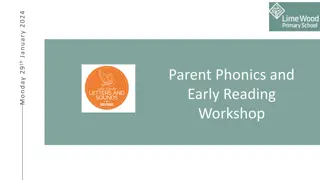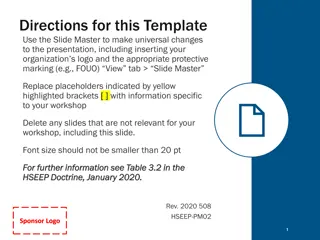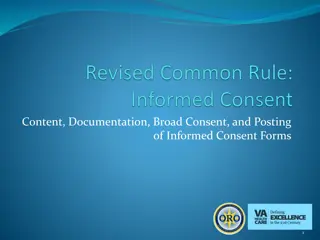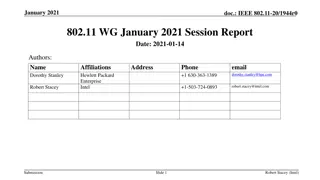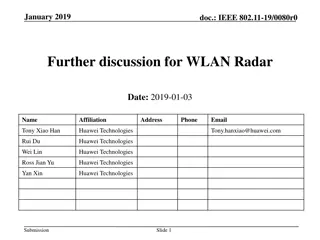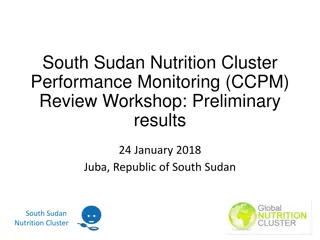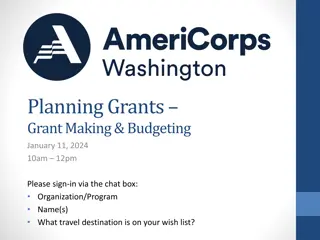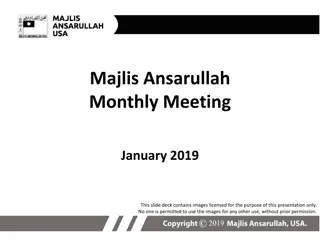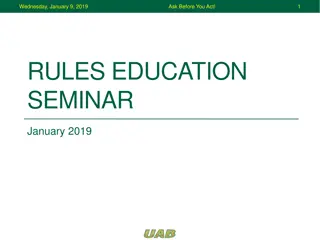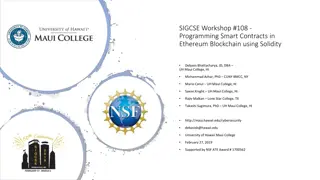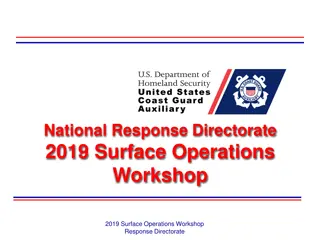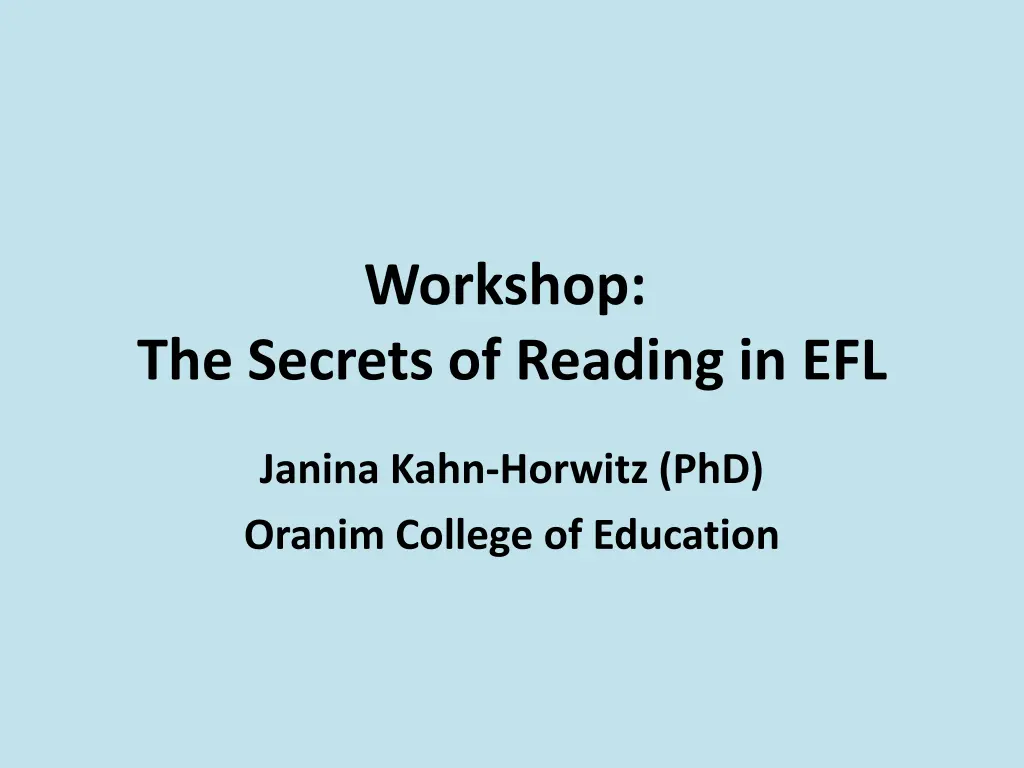
Effective Strategies for EFL Reading Success
Explore the secrets of successful reading in EFL with a workshop by Dr. Janina Kahn-Horwitz. Discover essential components such as phonemic awareness, phonics, vocabulary, and more for a comprehensive approach to reading instruction. Uncover the importance of phonological awareness, English writing system, and key vocabulary levels. Gain insights into teaching strategies and foundational knowledge needed for reading and writing proficiency in English.
Download Presentation

Please find below an Image/Link to download the presentation.
The content on the website is provided AS IS for your information and personal use only. It may not be sold, licensed, or shared on other websites without obtaining consent from the author. If you encounter any issues during the download, it is possible that the publisher has removed the file from their server.
You are allowed to download the files provided on this website for personal or commercial use, subject to the condition that they are used lawfully. All files are the property of their respective owners.
The content on the website is provided AS IS for your information and personal use only. It may not be sold, licensed, or shared on other websites without obtaining consent from the author.
E N D
Presentation Transcript
Workshop: The Secrets of Reading in EFL Janina Kahn-Horwitz (PhD) Oranim College of Education
Outline 1. Components of a reading lesson. 2. Focus on phonemic awareness, orthographic (letter) patterns and vocabulary. 3. Planning across elementary school (implications for older students). 4. Novel sounds and letters. 5. Teaching a reading lesson. Seminar MITF 6/10/2025
Essential Ingredients for Successful Reading 1. Phonemic Awareness 2. Phonics 3. Fluency 4. Vocabulary 5. Reading Comprehension National Reading Panel, 1997 August & Shanahan, 2006, NRP ELL Seminar MITF 6/10/2025
Phonological Awareness phonemes onset-rimes syllables Seminar MITF 6/10/2025
The English writing system takes time to acquire so we need to teach systematically and explicitly 26 letters 44 sounds Seminar MITF 6/10/2025
Band 1 vocabulary: Basics + Foundation Level ~950 lexical items ~160 conversational phrases and collocations Seminar MITF 6/10/2025
In order to read and write English you need to know: split vowel teams 21% digraph 9% consonant le 2% ar, or, er, ir, ur, 12% 5 long vowel sounds 10% sounds of the 5 short vowel sounds 43% letters of the abc Seminar MITF 6/10/2025
In order to read and write English you need to know: consonant sounds abc + ch , sh , th , ph : Some are more frequent: s, r, t, b, d, p Some have more than one sound: c in cat versus pencil , nice , bicycle ; g in bag versus magic page . 1. fun, lunch 2. six, think 3. class, chat 4. slept 5. stop, shop 6. animal Seminar MITF 6/10/2025
In order to read and write English you need to know: 5 short vowel sounds: 1. man, fantastic Very useful to teach: 43% of the syllables in the frequent words we want children to know by the end of elementary school. 2. red, seven 3. sit, swimming 4. hot, laptop 5. sun, hundred Seminar MITF 6/10/2025
In order to read and write English you need to know: vowel teams: 1. sleep, green 21% of the syllables in the frequent words we want children to know by the end of elementary school. 2. food, book 3. rain, email 4. say, day 5. eat, teach 6. out, house Seminar MITF 6/10/2025
In order to read and write English you need to know: vowel r : 1. car, start 12% of the syllables in the frequent words we want children to know by the end of elementary school. 2. her, sister 3. first, birthday 4. sport, story 5. church, turn Seminar MITF 6/10/2025
In order to read and write English you need to know: 5 long vowel sounds: 1. paper 10% of the syllables in the frequent words we want children to know by the end of elementary school. 2. he 3. I 4. no 5. music Seminar MITF 6/10/2025
In order to read and write English you need to know: silent or magic e : 1. game, save 9% of the syllables in the frequent words we want children to know by the end of elementary school. 2. here, evening 3. smile, time 4. home, note 5. Druze, June Seminar MITF 6/10/2025
In order to read and write English you need to know: consonant le: 1. table 2% of the syllables in the frequent words we want children to know by the end of elementary school. 2. little, bottle 3. example 4. people 5. bicycle Seminar MITF 6/10/2025
Goal: Our children need to be reading and writing by fifth grade 4thgrade: 3rdgrade: 32 * 4 = 128 lessons 32 * 2 = 64 lessons 6thgrade: 5thgrade: 32 * 4 = 128 lessons 24 * 4 = 96 lessons Seminar MITF 6/10/2025
A feasible plan for reading and writing acquisition About 3-7 new vocabulary items or conversational items per week (depending on the memory capacity of the learners) 1-2 letters/letter patterns per week: ~1 per lesson Seminar MITF 6/10/2025
What about letters or sounds that don t exist in a child s repertoire? Short versus long vowel sounds for Hebrew L1 speakers or the short /a/? /p/ for Arabic L1 speakers Voiced and voiceless <th> for Hebrew L1 and Russian L1 speakers Vowel digraphs for all Magic e for all Seminar MITF 6/10/2025
Essential Ingredients for an EFL reading/writing lesson 1. Teach letter-sound correspondence 2. Teach sound-letter correspondence 3. Phonological awareness: Blend sounds to make words/ break words into individual sounds 4. Read frequent vocabulary words made up of previously learned letters. 5. Write frequent vocabulary words made up of previously learned letters. 6. Read (and write) a text made up of words. Seminar MITF 6/10/2025
Demonstration of a reading lesson - beginner level Background: The class has already learned the following phoneme-grapheme correspondences: s, a, m The class learned I as a sight word. Today, I will illustrate teaching t
Review previously taught graphemes: s a m Dictate words + a sentence: am Sam I am Sam. Read words: am Sam Seminar MITF 6/10/2025
Brainstorm words that the class knows with t Choose a key word and introduce the letter: telephone television twenty teacher table tree ten t Seminar MITF 6/10/2025
Form the grapheme t in a multi sensory manner visual auditory kinesthetic tactile * trace on the table with fingers, in the air, create letter with your bodies, stickers, play dough, writing with pencils Seminar MITF 6/10/2025
Write a big t in personal notebooks. At the back of the t page, draw a picture of the key word. Label the picture. Give out handouts with t printed. Pupils should practice forming the t correctly. Whilst writing the t , they should pronounce the phoneme t . Seminar MITF 6/10/2025
Letter matrixes with s, a, m, t (cards) Read words with the above letters am, at, mat, sat, Sam Spell words with the above letters. Read a story with the above letters. Teach on as a sight word. Seminar MITF 6/10/2025
Word Reading am at mat sat Sam Seminar MITF 6/10/2025
Story Reading: Mat (see book) Mat. Mat sat. Sam. Sam sat. Mat sat. Sam sat. Mat sat on Sam. Sam sat on Mat. Mat sat. Sam sat. The End. Bob Books Seminar MITF 6/10/2025
Summary Review new letter. What is this letter? What is your key word? Trace the letter. Pronounce the letter. Homework: Read words with the new letter. Read story with new letter. Fill in missing words in a cloze format sentence. Seminar MITF 6/10/2025
What about JHS students who do not recognize letter patterns? Mini-lessons of 10-15 minutes integrated into your lessons. Seminar MITF 6/10/2025
Demonstration of a reading lesson advanced level Background: In a 7thgrade class it becomes clear that a large percentage of children do not automatically identify many of the more advanced letter patterns. One of these is the ou (as in out , house )
Brainstorm words that the class knows with ou Choose a key word and introduce the vowel team: out mouse house found ou Seminar MITF 6/10/2025
Work on the ou in a multi sensory manner visual auditory kinesthetic tactile * trace on the table with fingers, in the air, writing with pencils Seminar MITF 6/10/2025
Write ou in personal notebooks. At the back of the ou page, draw a picture of the key word. Label the picture. Practice forming the ou correctly. Whilst writing the ou , pupils should pronounce the ou . Seminar MITF 6/10/2025
Letter matrixes with ou - notebook Read words with the above letters sound, house, loud, outside, count, mouth, shout, about, round, without, our, out, thousand. Teach hour & flour. Spell words with the above letters. mouth, south, cloud, pound, house. Read a story with the above letters. Write sentences with the words (house, mouse, out etc.) Seminar MITF 6/10/2025
Story Reading: e-mail to Helen (see Entry Point 2, p. 58) Dear Helen, Please come and visit us in our new house. I want you to see my room. I am very proud of it. I found a red couch and a round rug at the Flea Market. I found cool posters, too. Best of all, I can now tell my sister, Go out and shut the door! I am on cloud nine! Love, Jane Seminar MITF 6/10/2025
Eilat is in the south of Israel. Teach new words with ou south south ground Seminar MITF 6/10/2025
Summary Review ou . What is your key word? Trace ou . Pronounce it. Homework: Read words and story including the ou . Write sentences with words containing ou . Seminar MITF 6/10/2025
What might we include in a kit bag to facilitate EFL literacy acquisition? Phonemic awareness (including novel sounds) Structured and explicit instruction of the letters, letter patterns. Marriage of the letter conventions (orthography) and vocabulary. Create a party for novel sounds. Facilitate learning and teaching in a measured manner. Set goals for the group/class and gradually reach them. Seminar MITF 6/10/2025
Thank you for participating! janina_k@oranim.ac.il Seminar MITF 6/10/2025





